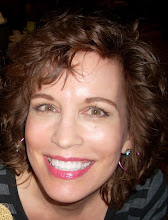And that most certainly is the question most writers face at some point in their careers. There are many benefits to having an agent: access to publishers who only allow agented submissions, marketing of your work, inside knowledge of the publishing world, helpful improvement advice, and of course if you’re lucky, a sale somewhere that actually gives authors upfront cash. Something I’ve never had, sigh. Not that I’m complaining. I’m grateful for my checks every quarter. Very grateful.
But somehow an upfront wad o’ cash means I’ve really made it…a publisher is giving me money based on what he or she thinks my book could produce. Heady stuff. Not to mention helpful in bill paying.
But back to the agent question before my pitcher of milk becomes spilt and curdled. Is there a down side to having an agent? Well, agents do have to make a living just like writers. They will take a percentage of your earnings, but only AFTER they have made a sale. This is an important point. Any agent who offers representation in exchange for cash, RUN. They will and rightly should pass along some expenses incurred while they were marketing your work such as long distance phone calls, postage, etcetera, but no agent worth his or her salt should bill you BEFORE a sale.
Taking a percentage of your sale is not a bad thing. Consider this: if someone is going to make money off a sale of your book, that person is going to work really really hard to sell it. And that leads to the second bad thing about obtaining an agent…it’s hard.
I like to think of it as the old Star Trek episode, Mudd’s Women. Remember poor Norman? Mr. Spock caught him in a logic loop so heinous Norman, an android, exploded. That’s sorta like getting an agent. Most times they won’t take you unless you have a proven track record, yet without an agent it’s hard to get that long list of publishing credits.
I tried to get an agent with my very first book. After hundreds of rejections which are just as painful as publisher ones I might add, a kind soul told me that he only represented (in his literary speak not my words) really famous people. He also added that I wrote well, “now go get some experience and creds.” He meant go get myself published.
So I did. I’ve learned what is popular. I’ve improved my writing technically. My skin is hard and callused from all the rejections, ha ha. Now I’m ready to try again.
The internet makes it harder and easier to find an agent. Harder because unscrupulous agencies thrive behind slick looking sites. Easier because you can usually submit electronically.
The Writer’s Market, who I have posted about before, has lists of agents. This is a great place to start, but they do charge a fee. Editors and Predators is a fabulous free site. Many agents…and publishers…do not like this site because they have, gasp, the audacity to state Bad Things about bad people and agencies. They are rather like the You Tube of the literary world, displaying rude and dishonest behavior for the world to see. So I started there and found a useful site they recommended called Agent Query.
http://www.agentquery.com/
I’m going to start at the top and work my way down. Usually with agents you can simultaneously query, but once you send in a manuscript it’s just like a publisher…they have exclusive rights while they decide if they want it or not. That sucks for writers, but looking at it from their viewpoint I do understand. They are taking precious resources and time to read…your stuff.
Saying that, even though you may simultaneously query is NOT a good idea to write a blanket letter, cc everyone, and push send. Why? First, what kind of impression will you make if you do not even use the person’s name? People, even agents, want to feel special. Like you picked their agency over all the hundreds of others. We all know writers look at multiple agents just like agents look at multiple writers, but at least keep the semblance of politeness. Second, make sure the agency represents what you are selling. Don’t send a romance to someone who only represents mysteries. Third, every agency, like each publisher, has specific submission guidelines. Follow them. They get thousands of queries. If yours doesn’t look like what they stated, they won’t even read it. You can start with a draft and then tailor to fit.
Here I go.
Wish me luck.
Sunday, January 3, 2010
Subscribe to:
Post Comments (Atom)





No comments:
Post a Comment